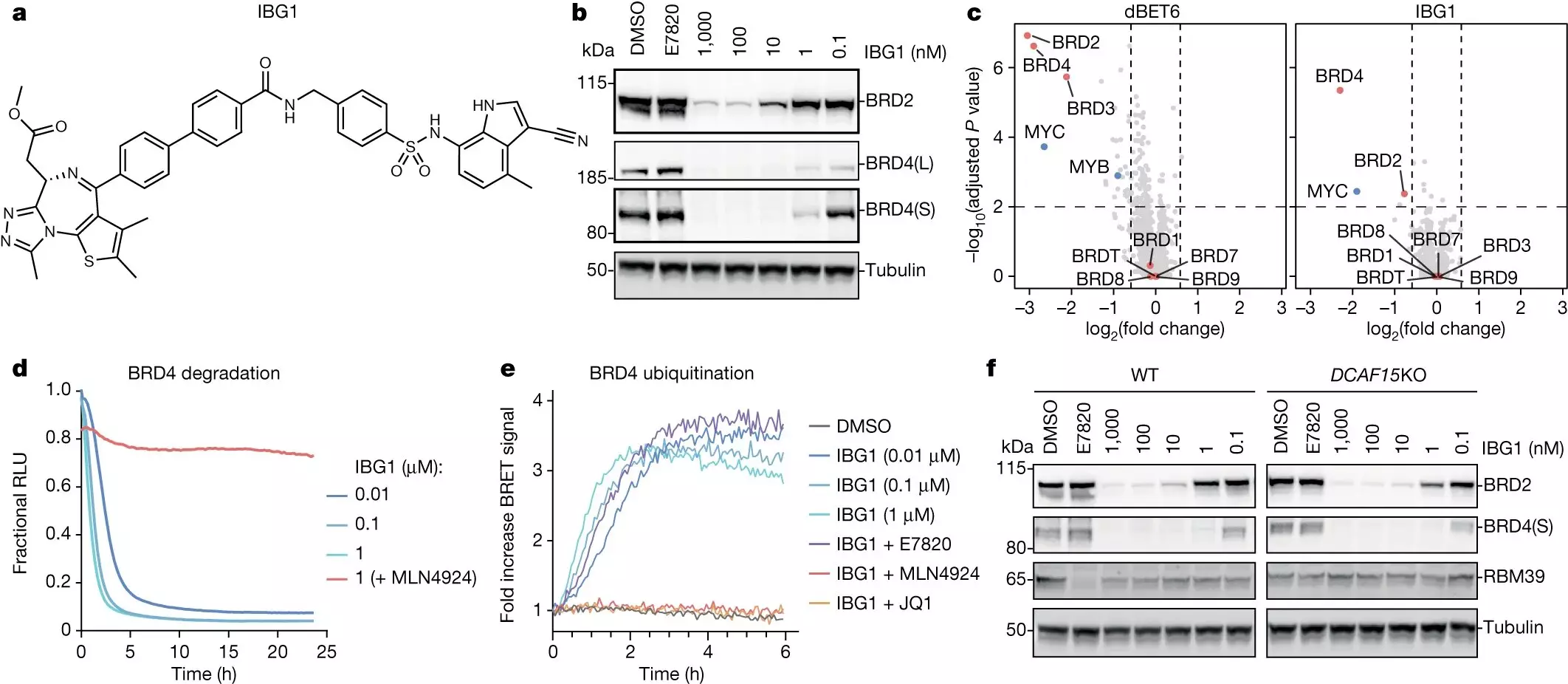In a groundbreaking development, a team of researchers at the University of Dundee has identified a new class of molecular glue that could revolutionize drug development for targeting cancers and neurodegenerative diseases. Led by Professor Alessio Ciulli, the research team at the Centre for Targeted Protein Degradation (CeTPD) has defined a unique type of “intramolecular bivalent glue” that has the potential to bind crucial proteins within cells, enabling new treatment possibilities.
Proteins play a vital role in ensuring the proper functioning of cells in our bodies. However, when proteins malfunction, it can leave the body vulnerable to diseases. The discovery of this specialized molecular glue is significant as it can target proteins that were previously considered undruggable, offering hope for developing new therapies for conditions like cancer and neurodegenerative disorders.
Unlike traditional approaches to targeted protein degradation, this new class of molecular glue binds to proteins in a unique way. By attaching itself to a protein in two places and recruiting a second protein, it effectively brings the two proteins together. This intricate mechanism, unveiled through the research collaboration with the Research Center for Molecular Medicine in Vienna, opens up exciting possibilities for designing drugs that can transform the treatment landscape for patients.
The use of targeted protein degradation as a strategy for treating diseases is a rapidly evolving field in drug development. By harnessing the power of molecular glues like the intramolecular bivalent glue identified by the Dundee research team, it is possible to redirect the protein recycling systems within cells to eliminate disease-causing proteins. This innovative approach may pave the way for more effective therapies and personalized treatments for a range of medical conditions.
The implications of this discovery extend far beyond the confines of the laboratory. The insights gained from studying the mechanisms of molecular glues have the potential to transform the pharmaceutical industry’s approach to drug development. By shedding light on previously unexplored features of molecular glues, researchers are opening up new possibilities for discovering novel drug classes at an accelerated pace.
The identification of this new class of molecular glue represents a major breakthrough in the field of drug development. The innovative approach to targeted protein degradation has the potential to revolutionize how we treat diseases that were once considered untreatable. As we continue to unravel the complexities of molecular interactions within cells, we move one step closer to unlocking the full potential of personalized medicine and tailored therapies for patients worldwide.



Leave a Reply